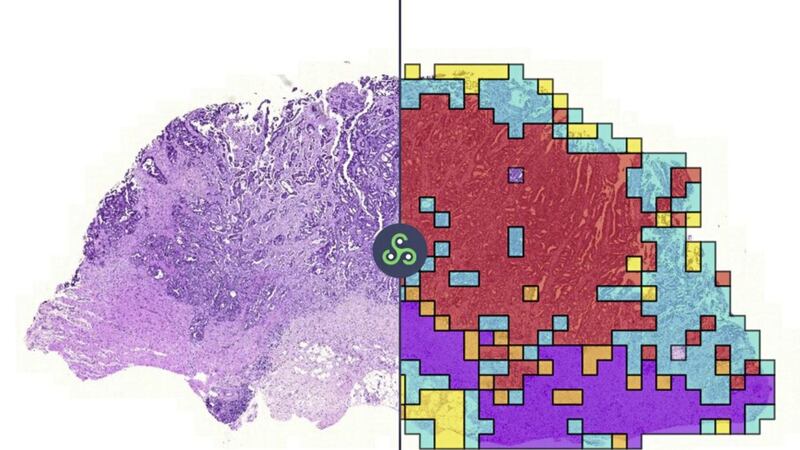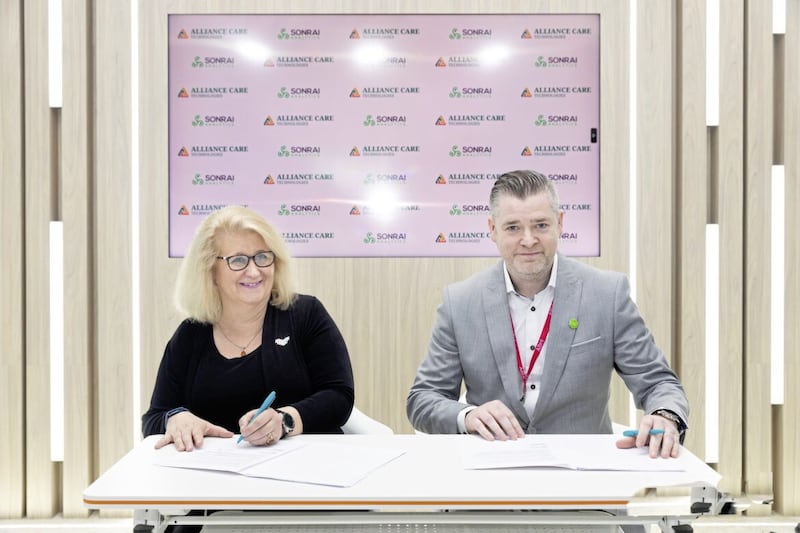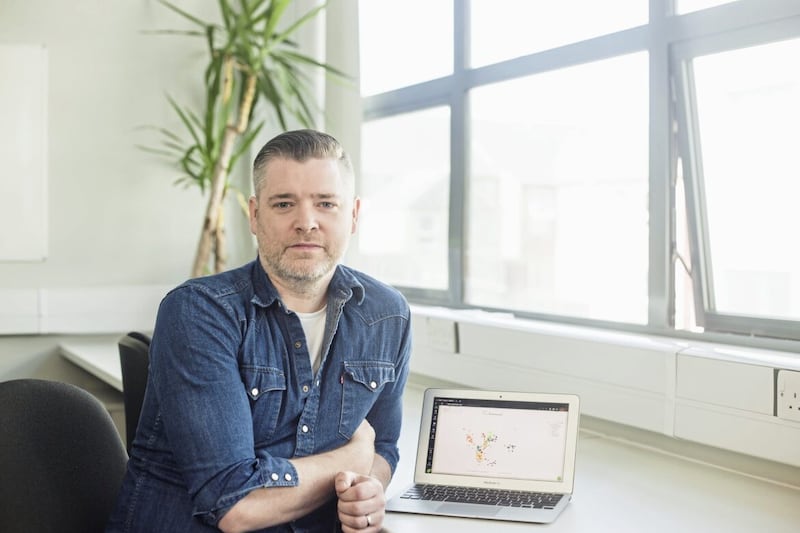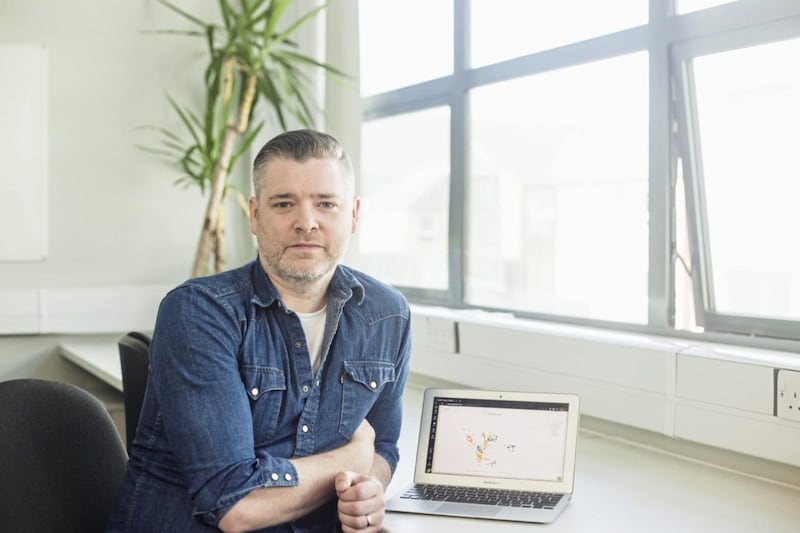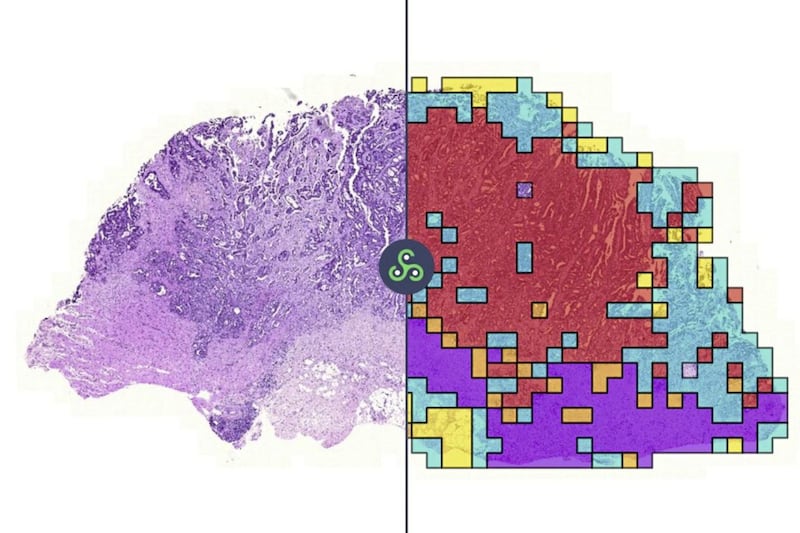BELFAST-based AI data discovery company Sonrai Analytics is launching a cutting-edge architecture that will lead to faster and more effective discovery of key mechanisms and drivers within healthcare.
The platform has been developed with the support of Dell Technologies, NVIDIA, Cancer Research UK and Innovate UK, the UK’s innovation agency.
The new AI infrastructure will enable Sonrai Analytics - founded in 2018 and based in the labs at Queen's University - to rapidly develop complex algorithms to improve the efficiency and accuracy of pathology and laboratory workflows.
It will allow for more complex algorithms and architectures to analyse data faster, speed-up discovery and unlock important insights that could lead to healthcare breakthroughs within the innovative test environment.
Sonrai chief executive Dr Darragh McArt said: “The relationships developed with NVIDIA and Dell in the technology sphere are important to help promote and foster innovation, allowing us to really add value towards our discovery of patterns within disease.
“This cutting-edge hardware will help advance our data science and deep learning operations to the next level.
“It enables our team to apply artificial intelligence on bigger datasets using state-of-the-art algorithms whilst also reaching optimal solutions faster.”
At present, large AI experiments can take days to complete, as datasets of hundreds of patients routinely contain terabytes of molecular and imaging data.
But with the latest next generation Dell EMC PowerEdge, the team at Sonrai Analytics will be able to analyse vast quantities of data at speed and accelerate the development of precision medicine.
